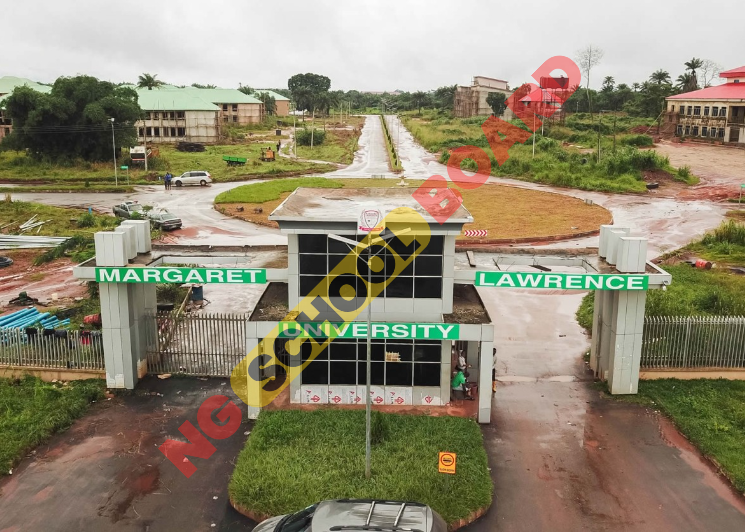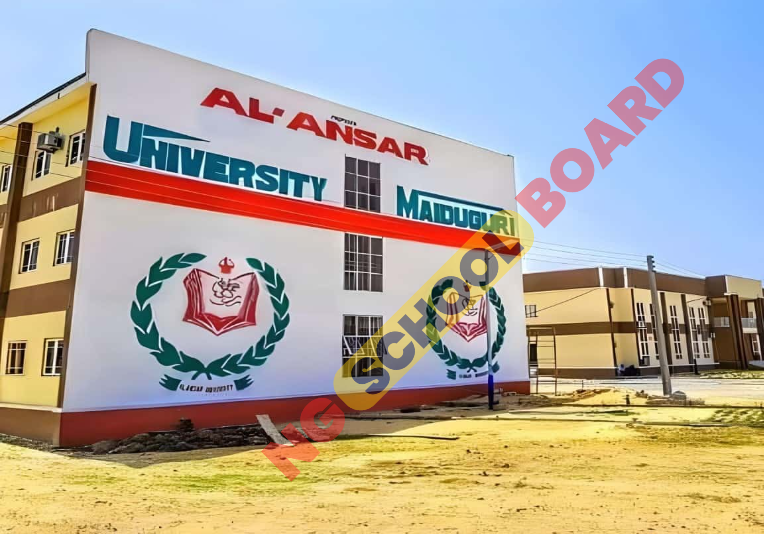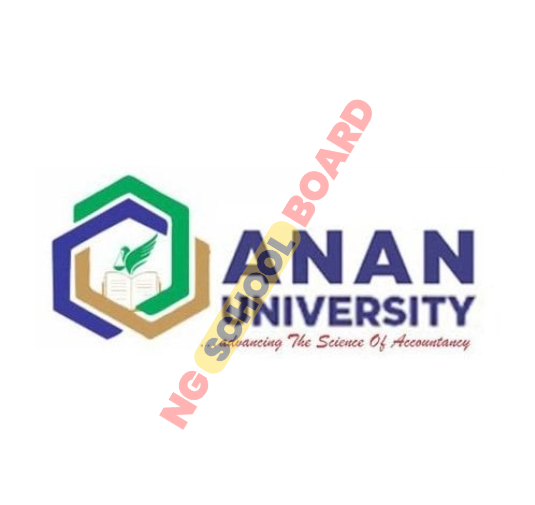An Overview of Courses at Bamidele Olumilua University of Science and Technology
Bamidele Olumilua University of Science and Technology (BOUESTI) is a state-owned university located in Ikere Ekiti, Ekiti State, Nigeria. Established in 2018, the university evolved from the former College of Education and now has over 8000 students across diverse faculties. BOUESTI offers a wide range of undergraduate and postgraduate academic programs.

ALSO SEE:
BOUSTI Portal: Admission | Student | Screening
Which University Has The Lowest Cut-Off Mark For Nursing – 160-150
BOUSTI Aggregate Score for All Courses
Bamidele Olumilua University of Science and Technology Ikere Courses Offered
| Faculty of Arts and Humanities | Faculty of Education | Faculty of Law | Faculty of Management and Social Sciences | Faculty of Science | Faculty of Technology | College of Medicine | Postgraduate Studies |
|---|---|---|---|---|---|---|---|
| Department of English Language | Department of Educational Foundations | Department of Law | Department of Accounting | Department of Biological Sciences | Department of Agricultural Technology | Department of Anatomy | Master’s degrees |
| Department of History and International Studies | Department of Guidance and Counselling | Department of Business Administration | Department of Chemistry | Department of Architectural Technology | Department of Physiology | Ph.D. programs | |
| Department of Philosophy | Department of Human Kinetics and Health Education | Department of Economics | Department of Computer Science | Department of Civil Engineering | Department of Biochemistry | Postgraduate Diplomas | |
| Department of Religious Studies | Department of Integrated Science Education | Department of Mass Communication | Department of Mathematics | Department of Electrical and Electronics Engineering | Department of Community Medicine | ||
| Department of Language Arts Education | Department of Political Science and Public Administration | Department of Physics | Department of Food Science and Technology | Department of Surgery | |||
| Department of Mathematics and Computer Science Education | Department of Psychology | Department of Mechanical Engineering | Department of Medicine | ||||
| Department of Social Science Education | Department of Sociology and Anthropology | Department of Obstetrics and Gynaecology | |||||
| Department of Vocational and Technical Education | Department of Paediatrics | ||||||
For more information on the specific courses offered, admission requirements, and application procedures, please visit the BOUESTI website: BOUESTI
Faculty of Arts and Humanities
With over 1000 students, the Faculty of Arts and Humanities focuses on liberal arts education across four departments. Programs aim to develop intellectual abilities, ethics, communication skills and cultural appreciation.
Department of English Language
This department offers a BA program in English Language. Courses cover English phonology, syntax, morphology, semantics, pragmatics, stylistics, sociolinguistics, psycholinguistics, and literature. Graduates are equipped for careers in education, publishing, editing, writing, public relations, and media.
Department of History and International Studies
The curriculum covers historiography, pre-colonial and colonial African history, economic history, foreign policy analysis, international relations theory, conflict resolution, and research methods. Graduates are prepared for roles as historians, diplomats, policy analysts, archivists, and researchers.
Department of Philosophy
Students take courses in logic, ethics, metaphysics, epistemology, political philosophy, philosophy of science, and history of ideas from ancient to modern periods. Critical thinking and analytic skills developed make graduates suitable for diverse fields.
Department of Religious Studies
This interdisciplinary program analyzes the theological, historical, and sociological aspects of religions. Students take courses in comparative religion, African traditional religion, Islam, Christianity, Hinduism, Buddhism, and the philosophy of religion. Graduates work in religious organizations, cultural institutions, tourism, and education.
Faculty of Education
This faculty has over 2000 students pursuing bachelor’s degrees across eight departments. Programs provide professional teaching skills and research capabilities.
Department of Educational Foundations
Students take courses in philosophy, psychology, sociology, and history of education. Additional courses are classroom management, educational planning and administration, education policy, and research methods. Graduates may work as teachers, administrators, policymakers, and researchers.
Department of Guidance and Counselling
The curriculum covers counseling theories, psychology, career guidance, special education needs assessment, and social work principles. Graduates are equipped to work as school counselors, career advisors, rehabilitation counselors, and mental health workers.
Department of Human Kinetics and Health Education
Students take courses on the anatomy, physiology, biomechanics, psychology, and pedagogy related to sports, exercise, and health promotion. Graduates find careers in coaching, fitness instruction, sports management, recreation, and health education.
Department of Integrated Science Education
This program provides training to teach integrated science subjects including physics, chemistry, biology, mathematics, and earth science at the secondary school level. Graduates are qualified to work as integrated science teachers.
Department of Language Arts Education
Students are trained to teach core language subjects like English, French, and Nigerian languages in secondary schools. The curriculum covers linguistics, language structure, phonetics, communication theory, and instructional methods. Graduates teach English, French, Yoruba, and other languages.
Department of Mathematics and Computer Science Education
The program focuses on pedagogy and content knowledge required for teaching mathematics and computing. Key courses are geometry, calculus, abstract algebra, statistics, algorithms, programming, and teaching methods. Graduates teach these subjects in secondary schools.
Department of Social Science Education
Students are equipped to teach social science subjects including economics, geography, and sociology at the high school level. Coursework covers content and instructional approaches for teaching these varied disciplines.
Department of Vocational and Technical Education
This department focuses on training teachers for vocational education in fields like agriculture, business, family economics, office technology, and graphic arts. Graduates teach relevant skills to secondary school students.
Faculty of Law
The Faculty of Law offers undergraduate and postgraduate academic programs to equip graduates for legal practice, judiciary and commercial roles.
Department of Law
The LLB program curriculum covers key legal subjects such as constitutional law, criminal law, contracts, torts, company law, jurisprudence, civil procedure, advocacy and ethics. Extensive moot court sessions provide practical legal training. Graduates work as lawyers, corporate legal officers, academics, judges and legal consultants across sectors. The faculty also offers specialized LLM and PhD degrees.
Faculty of Management and Social Sciences
This large faculty has over 3000 students pursuing programs focused on business, social studies, and media across its seven departments.
Department of Accounting
Students take courses in financial accounting, cost accounting, taxation, auditing, accounting systems, and reporting standards. Practical exposure is provided through accounting simulations and software. Graduates work as accountants, financial analysts, auditors, CFOs, and consultants.
Department of Business Administration
The curriculum provides foundation knowledge in functions like marketing, human resources, operations, strategy, and general management principles. Students also take courses in entrepreneurship, ethics, and leadership. Graduates are equipped for diverse business leadership roles.
Department of Economics
Core economics courses cover microeconomics, macroeconomics, econometrics, mathematical economics, monetary economics, public finance, international trade, and development economics. Graduates work as financial and economic analysts, consultants, researchers, and policy advisors.
Department of Mass Communication
Students take courses in news writing and reporting, broadcasting, public relations, advertising, journalism ethics, new media, investigative reporting, and communication research. Graduates build careers in media, public relations, digital marketing, and corporate communications.
Department of Political Science and Public Administration
The curriculum covers political theory, public policy analysis, comparative politics, federalism, development administration, international relations, conflict resolution, and research methods. Graduates work in public service, policy planning, governance institutions, and NGOs.
Department of Psychology
Students take theoretical and practical courses in developmental psychology, social psychology, organizational psychology, counseling psychology, tests and measurements, and criminal psychology. Graduates find jobs as counselors, organizational development consultants, special educators, and academics.
Department of Sociology and Anthropology
The program focuses on the study of society, culture, ethnicity, social institutions, gender relations, demography, social problems, and belief systems. Graduates work as social development consultants, policy analysts, gender experts, demographers and academics.
Faculty of Science
The Faculty of Science has over 1500 students enrolled across five departments offering programs in core science disciplines. Graduates pursue diverse STEM careers.
Department of Biological Sciences
Students take foundational courses in botany, microbiology, zoology, biochemistry, cell biology, genetics, ecology, physiology, and molecular biology. Graduates find roles in industries, research institutes, biotechnology, education, health sciences, and agriculture.
Department of Chemistry
The curriculum provides rigorous lab training in analytical chemistry, organic chemistry, inorganic chemistry, physical chemistry and spectroscopy. Students also take courses in industrial, environmental and petroleum chemistry. Graduates work in manufacturing, pharma, oil/gas, and allied chemical industries.
Department of Computer Science
Students learn programming, algorithms, data structures, software engineering, database systems, operating systems, computer networks, machine learning, and cloud computing. Graduates work as software developers, database engineers, data scientists, systems analysts, and IT consultants.
Department of Mathematics
The program focuses on building strong foundations in calculus, linear algebra, real analysis, probability, statistics, number theory, geometry, and mathematical modeling. Graduates are equipped for careers in science, research, analytics, finance, insurance, and teaching.
Department of Physics
Students take theoretical and practical courses in mechanics, electromagnetism, optics, thermodynamics, astrophysics, solid state physics, quantum physics, electronics, and nuclear physics. Graduates are employed in diverse technology, research, and teaching roles across domains.
Faculty of Technology
With over 1000 students, the Faculty of Technology offers career-oriented programs across six engineering departments to meet manpower needs.
Department of Agricultural Technology
Students learn about food processing, post-harvest technology, farm machinery, soil and water management, irrigation systems design, environmental control, and renewable energy applications. Graduates work in food and agro-allied industries, research, and agricultural extension services.
Department of Architectural Technology
The five-year program focuses on architectural design, building materials, construction technology, structural analysis, environmental control systems, landscape architecture, and professional practice. Graduates find roles as architects, building technologists, CAD specialists, project managers and lecturers.
Department of Civil Engineering
Key focus areas are structural engineering, construction materials, water supply, irrigation engineering, transportation engineering, geotechnical engineering, waste management, and environmental protection. Graduates work in construction, public works, infrastructure development, real estate, and as consultants.
Department of Electrical and Electronics Engineering
Students gain expertise in instrumentation, control systems, telecommunications, power systems, microelectronics, electrical machines design, and computer systems engineering. Graduates find electrical, electronics
engineering careers in utilities, manufacturing, construction, research, and consulting firms.
Department of Food Science and Technology
The program covers food chemistry, food microbiology, food processing and preservation, sensory evaluation, new product development, food safety systems, packaging technology, and quality control. Graduates work in food production, quality assurance, research, regulation, and academics.
Department of Mechanical Engineering
Students take courses on thermodynamics, fluid mechanics, heat and mass transfer, control systems, machine design, manufacturing technology, mechatronics, power generation, and refrigeration. Graduates find roles in the automotive, aviation, oil and gas, manufacturing, and process industries.
College of Medicine
The College of Medicine has over 500 students pursuing Bachelor of Medicine, Bachelor of Surgery (MBBS) and nursing degrees across eight departments.
Department of Anatomy
Human anatomy is taught through lectures, tutorials, dissections, models, and digital resources. Students learn gross anatomy, histology, embryology, and neuroanatomy. The knowledge forms the foundation for medical practice.
Department of Physiology
Students learn the normal functioning of the human body and underlying biological mechanisms. Courses cover body fluids, nervous control, cardiovascular, respiratory, digestive, endocrine, and reproductive systems. A strong foundation in physiology prepares students for clinical exposure.
Department of Biochemistry
The curriculum focuses on biomolecules, enzymology, metabolism, nutrition, molecular genetics, and clinical analysis. Students also take ancillary courses in computer science, mathematics, and physics. These provide the basis for medical biochemistry knowledge.
Department of Community Medicine
Students learn epidemiology, public health, disease prevention, health education, health management systems, occupational and environmental health. Graduates work in diverse community and public health roles.
Department of Surgery
Students take theoretical and practical courses on surgical principles, aseptic surgical techniques, pre and post-operative care, surgical equipment, specialized surgeries, and intensive care. Extensive clinical clerkships are provided. Graduates can specialize in general or sub-specialty surgery.
Department of Medicine
Students learn diagnosis and management of diverse medical conditions affecting various body systems through an integrated approach. Extensive bedside learning is provided. Graduates can further specialize in cardiology, neurology, nephrology, pulmonology, dermatology, or other disciplines.
Department of Obstetrics and Gynecology
The curriculum covers anatomy, physiology, pathology, pharmacology, and clinical management related to female reproductive health, pregnancy, childbirth, fertility, and neonatal care. Graduates work as obstetricians & gynecologists in hospitals and clinics.
Department of Pediatrics
Students learn clinical skills relevant to child healthcare including diagnosis, treatment, preventive care, developmental issues, and common illnesses in children. Graduates can further specialize as pediatricians through residency training.
Postgraduate Studies
BOUESTI offers various postgraduate programs up to doctoral level across its faculties. There are Master’s degrees, Postgraduate diplomas and PhD degrees in diverse subject areas. Programs equip graduates for advanced professional practice, research and academics.
Frequently Asked Questions
What are the admission requirements for undergraduates at BOUESTI?
The minimum entry requirement for bachelor’s degrees is 5 credits in WAEC/NECO including English, Mathematics and other relevant subjects. Some programs also require specific credit passes.
What student facilities and services are available on campus?
BOUESTI has well-equipped classrooms, laboratories, libraries, healthcare center, sports facilities, cafeterias, bookshops, accommodation, places of worship, banks, and regular Wi-Fi and power supply.
Does BOUESTI offer distance learning programs?
As of now, BOUESTI does not offer full online degree programs. However, it has plans to establish centers for continuing education and distance learning programs in the future.
What scholarships or financial aid options are available for students?
BOUESTI provides scholarships, bursaries, and fee remissions based on academic merit, sports talent and financial need. Students can also access educational loans through partner banks.
How can international students apply for admission?
International applicants can apply directly online along with scanned copies of academic transcripts, passport, statement of purpose, English proficiency scores, and application fees.
What student clubs and activities are offered on campus?
BOUESTI has over 40 student clubs focused on academics, culture, arts, sports, social service and hobbies. Events like cultural shows, conferences, community service activities are also regularly conducted.
Does BOUESTI have exchange programs or partnerships with foreign universities?
Yes, BOUESTI has established linkages with universities in US, UK, Europe and Asia for faculty-student exchanges, collaborative research, and credit transfers to enable global exposure for students.
What career support is available for students?
The Office for Career Services provides CV reviews, interview coaching, workplace readiness training, internship opportunities and graduate employment fairs to support student career development.
What accommodation options are available for students?
BOUESTI has on-campus hostels that can house about 35% of full-time students. Others arrange for private accommodation near campus through the school’s approved agent.
What is BOUESTI’s grading system for courses?
BOUESTI follows a 5-point grading scale from A (70-100%) to F (0-39%). Other grades awarded include P (Pass) and W (Withdrawn). GPA calculations determine students’ academic standing and eligibility for graduation.






